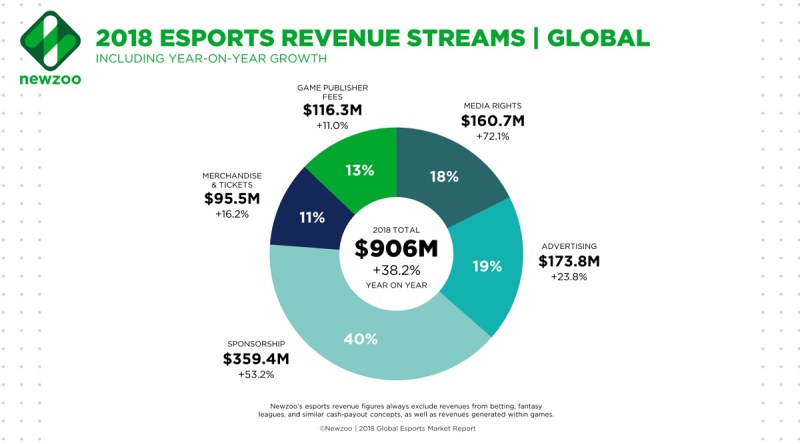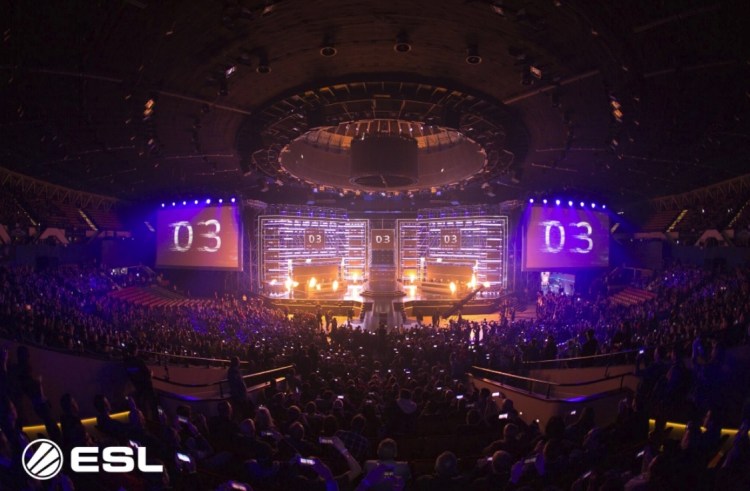GamesBeat: Do you guys do anything in Las Vegas?
Martinez-Rea: We’re looking at some things there now. We have done things in Vegas, a couple of years. What we found, at the time at least, is that our audience isn’t really spending the cash that it takes to go to Vegas. People said, “Oh, sure, anybody will take a weekend to go to Vegas.” But what we found is, the fans all said, “No, that’s too expensive.” It’ll be interesting to see if that’s shifted now. But at the time, you know, 14-year-olds can’t go there by themselves, and their parents aren’t going to take them.
Vegas has a lot of advantages. But what we’ve learned is that it’s all about the right game that attracts a particular audience and a venue that can work with us on that. It’s all a puzzle. The casinos are very hot. We take a lot of meetings with cities now. Every city in the world wants to build an esports arena, or convert a current one.
GamesBeat: You bring a good demographic now. Everyone wants them.
June 5th: The AI Audit in NYC
Join us next week in NYC to engage with top executive leaders, delving into strategies for auditing AI models to ensure fairness, optimal performance, and ethical compliance across diverse organizations. Secure your attendance for this exclusive invite-only event.
Martinez-Rea: We had people from New Zealand in the other day. They were in town for some economic conference and they wanted to come and talk about doing esports, so we connected them with the Australia team. Their demographic is pretty young, actually. It’s definitely crossed the threshold of being a thing that even governments are aware of.

Above: Sponsorship is the biggest source of revenue for esports in 2018.
GamesBeat: Has all the attention esports has gotten in the last year prompted a change in strategy for you guys?
Martinez-Rea: It’s definitely driven us to think about where we’re going to focus the business. One of the reasons ESL has been so successful and gotten to this scale, traditionally no one else was doing a lot of this. We had to do it ourselves. There was no one else who had an ad network for esports, so we had to build it. No one else was doing sponsorships, so we built sponsorships. No one else was doing the amateur stuff. We built all of this because it didn’t exist 10 or 15 years ago.
Others are now doing those things, and so as we’ve gotten to the size we’ve gotten, the question becomes, how do we focus the business? Where do we make the big investment? We’ve learned that what we’re really good at is what we call zero to hero: taking one title, one community, focusing on the core of the core, and creating a very scalable path from amateur to professional, for the game and for the players. That takes time. We feel like what we’ve done with Counter-Strike, DOTA, and now with Rainbow, we can start to do that with other titles.
We’ll always work with publishers because we believe that they’re good for esports, but also because we like being involved at early stages with lots of titles. You never know what’s the next great esports. The reality, though, is that today only a handful have the scale. We’ll continue to hone in on those. Otherwise, we’ve definitely professionalized our client teams, our sales teams, our marketing organization. Some of these things that traditionally esports was a bit more relaxed about.
Now you need people who know how to deal with top brands, who know how to do high-level strategic business development deals. Even having PR. Two years ago when I got here we didn’t have a PR firm. We didn’t have anybody doing PR. Those kinds of things are natural investments for any company that’s getting bigger in a space that requires more professionalism.
GamesBeat: Do you think the battle royale games are going to wind up being watchable?
Martinez-Rea: That’s the question of the week. It’s absolutely watchable, in my opinion. I have a 14-year-old and an 11-year-old that play them all the time. I think the question that is yet to be answered, and that will take time to answer, is whether they’ll be competitively compelling.

Above: Esports is big, but it needs to monetize better.
GamesBeat: There’s a lot of random watching of people until you get down to the last few. Then it gets exciting.
Martinez-Rea: It’s absolutely going to be incumbent on all of us to figure out how to tell the stories. Is it about post-production as opposed to live? All of those questions are still to be answered. As a parent, I’d say that it’s visually easier to enjoy, but also conceptually, it’s a lot less complicated, at least for me, than figuring out all the elements of how to enjoy watching Counter-Strike.
GamesBeat: The part that seems complex is getting 100 people on stage.
Martinez-Rea: For sure. And how do you call the action? We’re really excited about it. Culturally there’s no question that it’s hit a nerve. It’s a lot of fun. The caution that you’ll hear from everyone on our team that’s been around for a long time is that none of these things took two years to develop the legs to have long-term viability. They all took years. We need to be patient. This might be the next hot thing, but it’s going to take a while, from our perspective, for it to have that true competitive ecosystem and for everyone to figure out how you consume it.


